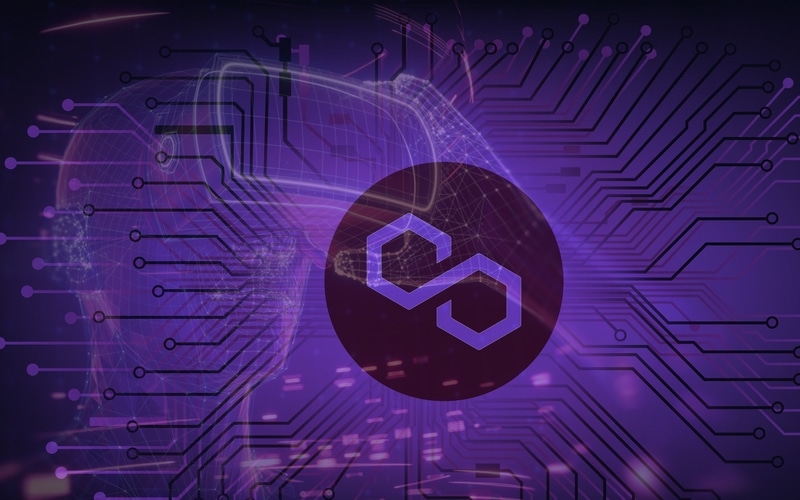
If you were a fan of geometry in mathematics, you would know a polygon is a five-cornered plane figure.
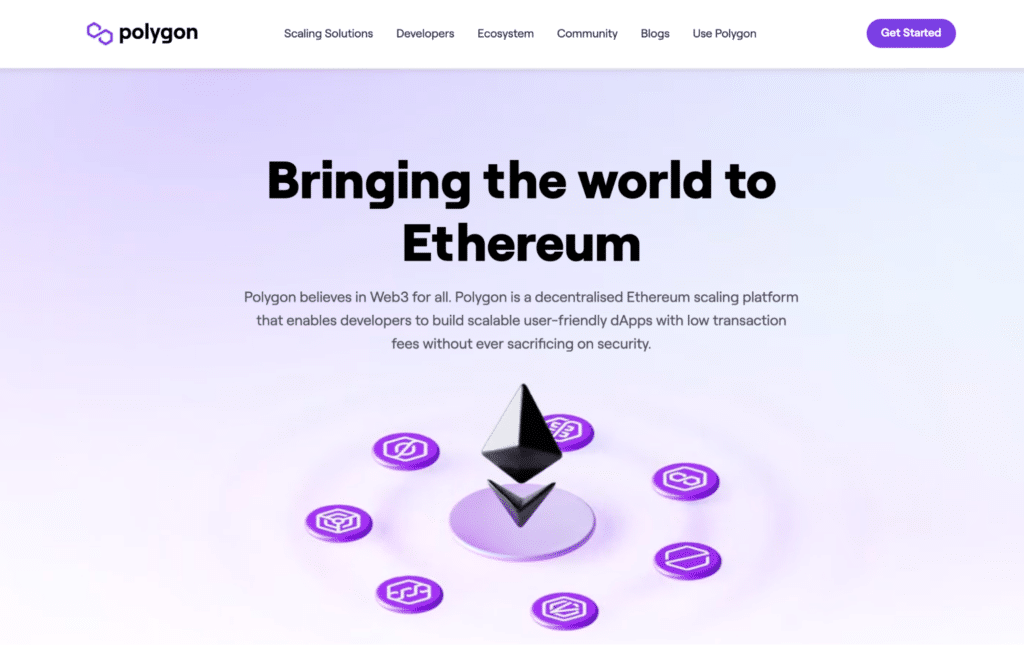
The Polygon blockchain is just as versatile and diverse. This platform was launched in 2017 and is one of the most widely used blockchains on the planet. Developers behind this project bill it as ‘Ethereum’s internet of blockchains.’
Polygon is more of a sidechain or layer-2 to Ethereum, allowing developers to build a host of interoperable applications with Ethereum and leverage its security and user base.
Any crypto enthusiast will have witnessed numerous trends within the space in the last few years. These include a rise in DeFi (decentralized finance), NFTs (non-fungible tokens), and, more recently, the metaverse.
Experts have been waxing lyrical about the metaverse, with many different descriptions of this concept. However, it can be best and simply summarised as ‘the future of the internet.’
Blockchain technology has been a massive part of the internet as well, making it a perfect combination. Presently, the blockchains responsible for building most of the metaverse-based tokens are Ethereum, Solana, Binance Smart Chain, and, of course, Polygon.
This article will look at the top 6 projects using Polygon for tokenization purposes. It’s worth noting that, since Polygon and Ethereum are strongly associated, we won’t include the likes of Decentraland and The Sandbox as those are technically Ethereum-based.
Bloktopia
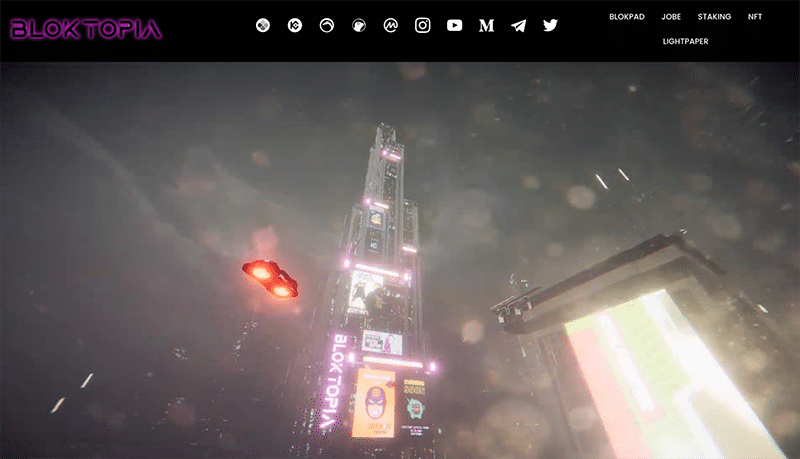
By trading volume, Bloktopia is the most prominent metaverse-focused token project backed by Polygon. The virtual world in Bloktopia is a 21-level skyscraper (in reference to the 21 million fixed supply of Bitcoin) inhabited by ‘Bloktopians.’
At its core, Bloktopia is an educational platform, positioning itself as a central hub for anyone to learn about the fascinating yet often daunting world of cryptocurrencies (including about the metaverse, of course).
Bloktopia uses advanced 3D engine technology to provide a visually stunning and immersive virtual experience.
The platform centers around four pillars:
- Learning (crypto education)
- Earning (purchasing or leasing virtual real estate, staking, and advertising)
- Playing (socializing and entertainment)
- Creating (scene-building, artworks, challenges, etc.)
BLOK is Bloktopia’s native token used to purchase all digital property, access exclusive events, staking, and more.
Decentral Games ICE Poker
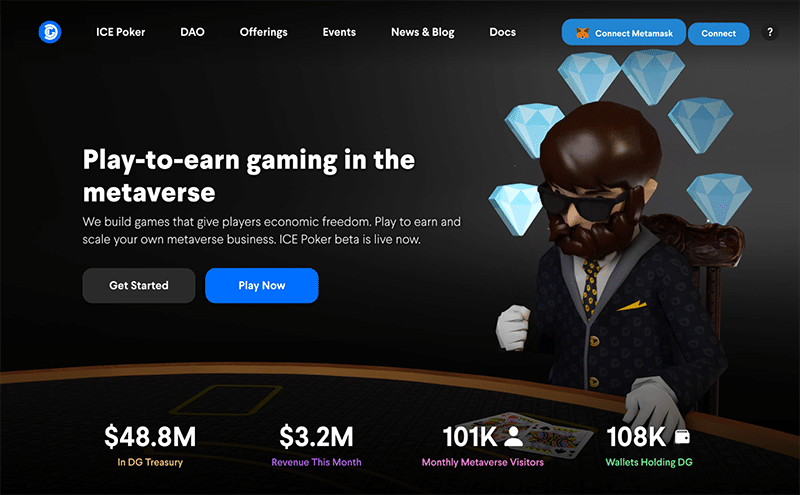
ICE Poker is a play-to-earn poker game developed and run by Decentral Games. The game is powerted by the Decentraland Metaverse, one the leading gaming and metaverse projects of the Polygon blockchain. With ICE Poker, players compete individually or in groups through numerous daily challenges for a shot at earning the game’s native currency, ICE.
The second currency forming part of ICE Poker’s ecosystem is the governance token DG, governing the Decentral Games treasury. As with any governance token, through staking DG, players have voting power to decide on future implementations within the game.
For participation, players first will need to obtain what is known as an ‘NFT wearable’ available through purchase from Decentral’s marketplaces or delegation. Once in possession of a ‘wearable,’ you are allocated a certain number of chips to start playing.
Polychain Monsters
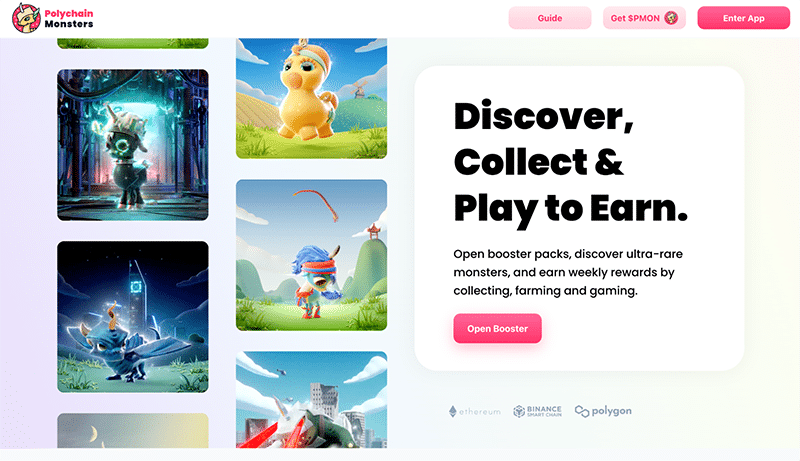
Polychain Monsters (previously Polkamon) is a heavily Pokémon-inspired NFT gaming project. It centers around collectible, beautifully-animated monsters referred to as ‘Polymons’ that players can turn into NFTs.
Gamers acquire these Polymons through ‘digital booster packs’ using the platform’s in-game currency, PMON, secured by the Polygon, Binance Smart Chain, and Ethereum blockchains.
Each Polymon comes with different traits enhanced overtime to make it the most attractive and scarce. Polychain isn’t only focused on gaming but on collecting and ‘farming’ or staking as well.
Players participate in collector staking or ‘collect-to-earn’ (a variant of traditional staking), where a collector score is assigned by completing challenges to earn passive income in PMON.
Onston
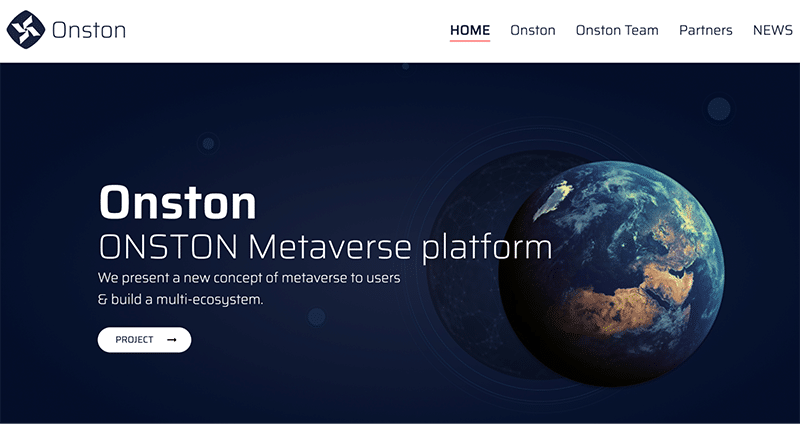
While Onston was announced in November 2021, it’s still not a fully-fledged product. However, its native token, ONSTON, is already publicly tradable and is ranked #2886 in CoinMarketCap rankings with a price of $0.10.
The idea for Onston is heavily inspired by Second Life. Onston looks to be a multi-metaverse platform filled with activities revolving around travel, hotel-staying, expanding living spaces, buying property, creating items, selling artwork, and more.
An NFT marketplace will also form a large part of Onston. Another exciting aspect is how Onston plans to use augmented and virtual reality technology with facial recognition.
Developers behind Onston have stated the 3D virtual world should be live in the second quarter of 2022.
Pegaxy
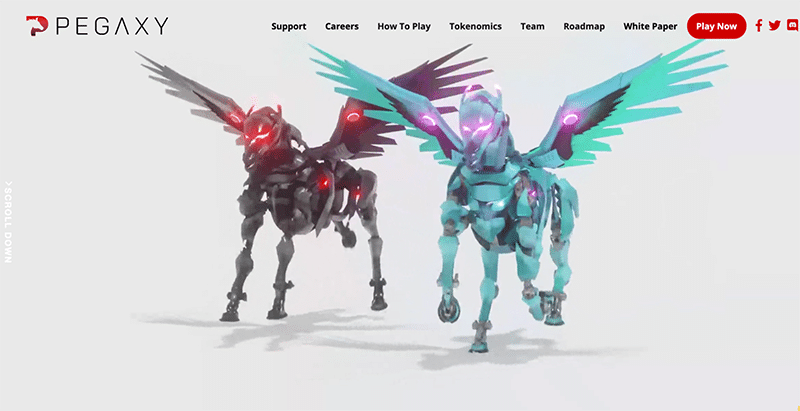
Pegaxy is one intriguing project for any gaming fans interested in Greek mythology. The Pegasus Galaxy or Pegaxy is a racing game centered around futuristic mechanical, Pegasus-inspired horses known as Pega, which one can buy, sell, rent, and ‘breed.’
This PvP game sees players racing against each other to win Pegaxy’s utility token, VIS (Vigorus). The other token in Pegaxy’s economy is the governance token, PGX. As with many tokens of this nature, PGX allows holders to influence future decisions and staking.
OneRare
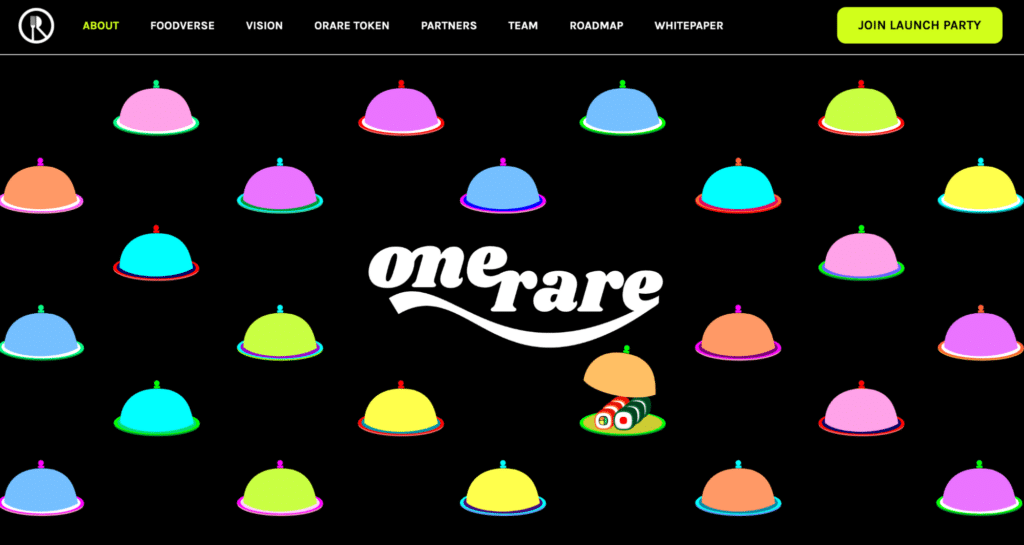
Are you feeling hungry? How about a metaverse based entirely around food, one that is ‘foodifying’ the blockchain? Well, OneRare’s ‘foodverse’ is precisely that. OneRare is the first-ever food-themed metaverse.
This project adds a tokenization and gamification layer to celebrate the many different food types the world over, with several playing, earning, collecting, and battling elements are thrown into the mix.
This foodverse is divided into four parts, namely the following:
- Farming (a play-to-earn land where farmers grow crops)
- Farmer’s Market (where collectors buy ripe produce from the farmers)
- Kitchen (use recipes to create unique dishes)
- Playground (NFT owners battle in mini-games)
Curtain thoughts
Plenty of research analysis on the potential of virtual reality expects this market to be worth at least $800 billion when 2025 begins. Despite some concerns on the negative social aspects, the metaverse is poised to change almost everything we know about the internet.
The main reason so many blockchains are involved in this concept is that every metaverse will have its own economy. Of course, cryptography is the answer to creating fully-fledged currencies functioning much like how real money does.
Polygon is one of the few blockchain providers developers are going to for tokenization of their metaverses as the emerging web 3.0 will radically transform how we play, learn, socialize and earn.








Leave a Reply